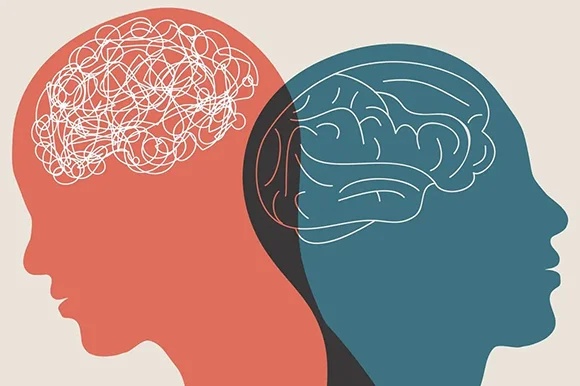Anxiety and depression are both mental health disorders that can significantly impact a person's quality of life, relationships, and overall well-being. While each disorder has its distinct features, it's not uncommon for them to coexist, complicating diagnosis and treatment. Understanding the relationship between anxiety and depression is crucial for providing effective support and care to those affected.
Understanding Anxiety and Depression
Anxiety is characterized by excessive worry, apprehension, and a sense of restlessness. It often manifests as physical symptoms like increased heart rate, sweating, and muscle tension. On the other hand, depression involves persistent feelings of sadness, hopelessness, and a lack of interest or pleasure in activities once enjoyed.
The Overlapping Symptoms
One of the reasons anxiety and depression are often linked is that they share many common symptoms. For instance, both disorders can cause sleep disturbances, difficulty concentrating, irritability, and changes in appetite. This overlap can make it challenging to distinguish between the two conditions, leading to potential misdiagnosis.
Shared Risk Factors
Genetics and Family History
Both anxiety and depression can run in families, suggesting a genetic predisposition. If a close family member has experienced either disorder, an individual might have a higher risk of developing either or both conditions.
Brain Chemistry and Neurotransmitters
Imbalances in brain chemicals, such as serotonin and dopamine, are associated with both anxiety and depression. While the specific mechanisms might differ, these chemical imbalances contribute to the development of both disorders.
Environmental Factors
Stressful life events, trauma, chronic illness, or major changes in life circumstances can trigger or exacerbate both anxiety and depression. Adverse experiences can create a fertile ground for the emergence of either or both conditions.
The Bidirectional Nature
The relationship between anxiety and depression isn't unidirectional. People with anxiety are more likely to experience depressive episodes, and vice versa. This bidirectional nature can create a cycle where anxiety feeds into depression and vice versa, intensifying the symptoms of both disorders.
Treatment Challenges
The coexistence of anxiety and depression can complicate treatment. Some treatments that work well for one disorder might exacerbate symptoms of the other. For instance, antidepressants, which are often prescribed for depression, might trigger increased anxiety in some individuals.
Coping Strategies
Coping with the coexistence of anxiety and depression requires a multifaceted approach. Therapy, such as cognitive-behavioral therapy (CBT), can help individuals learn strategies to manage negative thought patterns and develop healthier coping mechanisms.
Breaking the Cycle
Breaking the cycle between anxiety and depression involves addressing both disorders simultaneously. Therapists may tailor interventions to target specific symptoms of both conditions and help individuals build resilience against future episodes.
Conclusion
The intricate relationship between Anxiety and depression underscores the complexity of mental health. While they are distinct disorders, they often coexist and interact in ways that can exacerbate symptoms and complicate treatment. Recognizing the shared features, risk factors, and bidirectional influences is crucial for providing effective care and support to individuals struggling with both anxiety and depression.


No comments yet